They say: dogs are man's most loyal friends. So how did they become our friends?
The current prevailing view is that dogs were domesticated from wolves 10,000 years ago. The less aggressive wolves that appeared near human settlements would have lived longer than their counterparts in the wild with the aid of eating human food.
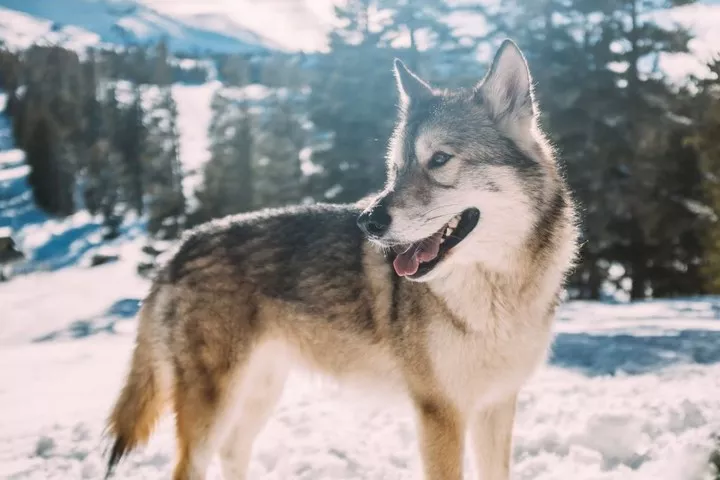
▲ Image from: Unsplash
Gradually, the offspring thus bred became docile and, in a long evolutionary process, turned into dogs. Also by eating human food, they gradually changed from carnivores to omnivores like humans.
There are hundreds of millions of pet dogs around the world, and in terms of the domestication of dogs, one of the important parts of their transformation from early enemies of humans to lovable 'fur kids' today is - food.

▲ Image from: Unsplash
As the saying goes, food is the key to people's lives. In fact, not just for people, but for all animals, 'eating' is a big deal. Choosing what to eat is also quite important, naturally.
Some people are meatless, but eating vegetables tastes like wax; some people are concerned about the meat and vegetables, and the meat and vegetables are missing; some people are vegetarians, and various plants appear in the bowl.
Like people, dogs actually have their own likes and dislikes when it comes to diet, for example, some dogs like yogurt and some like bitter melon ...... It's just that people can choose their food according to their preferences, but for dogs, the diet depends on how the owner chooses in terms of feeding.
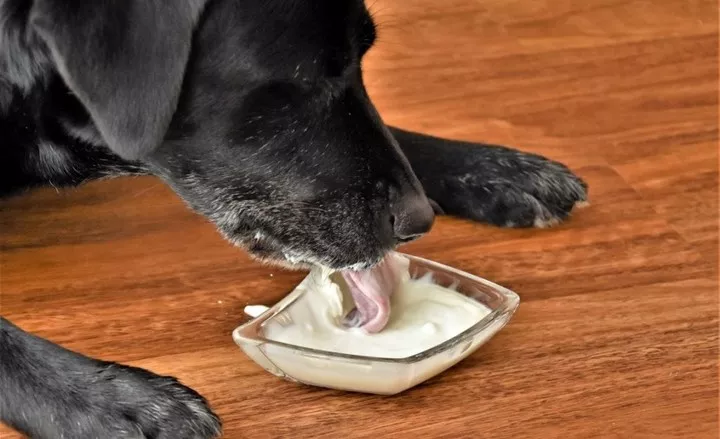
▲Image from: K9 of Mine
Some owners will carefully select a variety of commercial pet foods; some will make their own food at home; and others will let their pets eat the same food as themselves, but will be careful in their seasoning (they can't eat salty).
A thousand pet owners may have a thousand ways of feeding their pets, and a number of people today even choose to put their pets on a vegetarian diet. Not long ago, a study was published in the publication PLOS ONE that concluded that dogs are healthier on a vegetarian diet.
Dogs to be vegan?
In the study, led by University of Winchester professor Andrew Knight, after studying 2,500 dogs, it was found that dogs on vegetarian diets took less medication and visited the vet than their meat-eating counterparts, and that dogs on traditional omnivorous diets appeared to be less healthy than those consuming vegan diets.
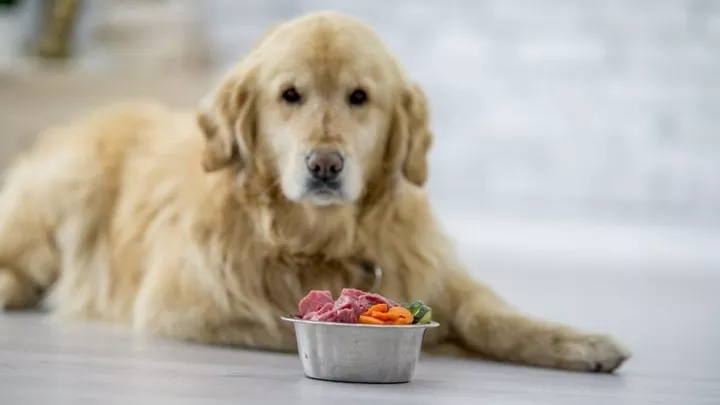
▲Image from: DogTime
Vegetarianism is not new to most people, but there are many different options for eating vegetarianism: there is 'lacto-ovo' which does not consume animal foods (animal sources such as livestock, poultry, eggs, aquatic products, milk and its products) but will consume milk and its products; there is 'ovo-ovo' which does not consume animal foods but will consume eggs and milk; and 'vegan' which does not consume any animal foods.
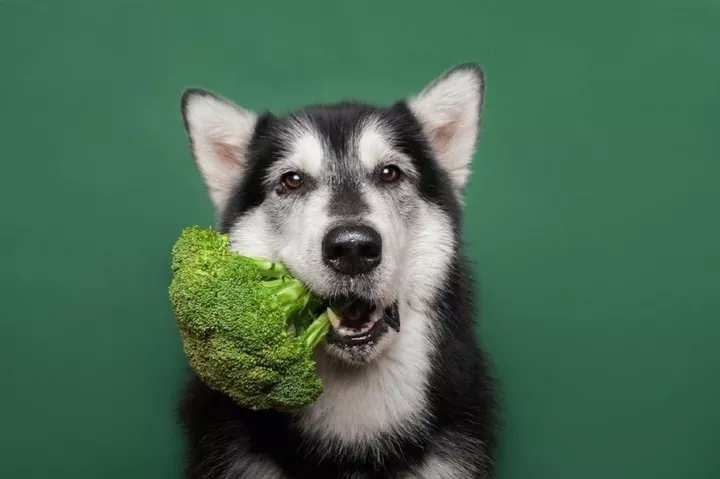
▲ Image from: Hepper
What the study refers to are 'vegan diets', which are vegan diets, and the strictest class of vegan diets.
Is it really possible to put a dog on a vegan diet?
Is this study really reliable?
In the study led by Professor Andrew Knight, data from a survey of 2,596 guardians who provide food for dogs showed that of 2,639 dogs, around 54% were fed conventional meat, 33% were fed raw meat and around 13% were on a vegan diet.
The researchers also considered the prevalence of 22 specific health diseases based on predicted veterinary assessments. In these diet groups, about 49% of the dogs considered to have health diseases were fed conventional meat, about 43% were fed raw meat, and about 36% were vegan.
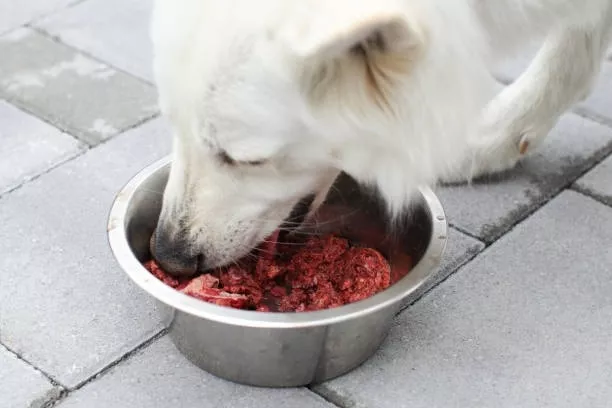
▲ Image from: Pixabay
Add to this the fact that there are studies that show a number of dangers associated with a raw meat diet, including nutritional deficiencies or imbalances, and susceptibility to pathogens. Taking this evidence together, the study concludes that the healthiest and least dangerous dietary choice for dogs is a nutritionally sound, vegan diet.
There may not seem to be anything wrong with such a process of research derivation, except that the study itself has a number of limitations.
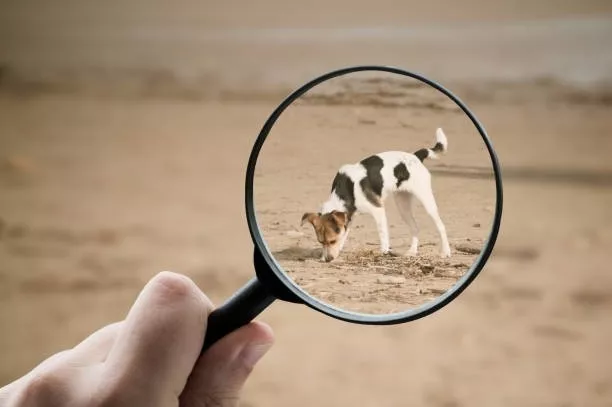
▲Image from: Getty Images
With 2639 dogs involved in the study, the sample size was not too small. However, access to information on dogs and owners was based on an online survey, relying on quantitative information and input from the dogs' guardians.
Although veterinary clinical examinations and veterinary assessments of animal health are often more reliable than guardianship alone, the large number of animals involved makes research expensive and beyond limited research budgets.
Therefore, the researchers had to rely on other health indicators. Guardians were asked to provide information on the seven general health indicators and the prevalence of specific health diseases in the previous year, as well as to recall the previous year's feeding and medical visits of their pets.

▲Image from: Getty Images
But memory is, after all, prone to lapses. Plus the survey also informed the monitor that if they could not recall details, they were asked to provide their best estimate, or to answer 'not sure'. Also, the guardians participating in the study had to have taken their pets to the veterinarian more than once in the previous year and be sure of the veterinarian's assessment.
In addition, the health status of dogs may be influenced by age, sex, neutering status, and breed, but the researchers decided not to consider the impact that certain additional factors may have on health outcomes. For example, because of concerns that small numbers in breed groups would limit the ability to statistically analyze subsequent results, it was ultimately chosen not to differentiate by breed in this study.

▲Image from: Pet Keen
It's worth noting that the organization funding the experiment is ProVeg International, an organization whose mission is to reduce global animal consumption by 50% by 2040 and which has previously invested in a vegan dog food company.

▲ Image from: ProVeg
This shows that this study, from the subject of the study to the methodology of the study, and even the purpose and motivation of the study, has certain limitations. The conclusions drawn from this study then also seem to be somewhat discounted in terms of reliability.
What kind of veganism do dogs need?
Giving animals a vegetarian diet will cause a lot of discussion, and it actually has to do with the fact that there are more and more vegetarians nowadays. Apart from practicing vegetarianism themselves, they also want their pets to be vegetarian too.

▲Image from: MedicineNet
It is well known that people need to consume many different nutrients every day: proteins, fats, sugars, vitamins, minerals, water, and fiber, so it is important to choose a variety of different foods for balanced nutrition. If you eat only veggies, the intake of some nutrients is bound to be inadequate, for example, you tend to lack the protein provided by meat.
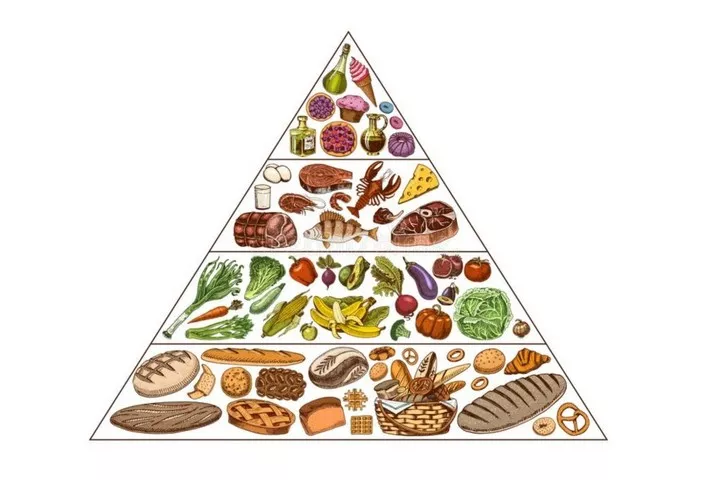
▲ Image from: Dreamstime
Some animal foods provide nutrients that can be replaced with a vegan diet, such as supplementing protein with plants like soy. Therefore, there is nothing wrong with eating a vegan diet, but to ensure good health, it is important to pay attention to the balance of nutrients, and to take additional supplements for nutrients that are not available or not available in sufficient amounts on a vegan diet, such as iron, calcium, vitamin D, vitamin B-12, etc.
People are omnivores and can choose their food according to their preferences, whether they are vegetarians or meatless, either way, it's just a different diet. But pets may not.

▲ Image from: Unsplash
Unlike humans, several studies have shown that cats are carnivores: niacin, taurine, arginine, etc., are obtained by cats almost exclusively from food, especially meat. And since the cat has a very short intestine, indicating that it has a short digestion time, and plant-based foods usually take longer to digest, it is clear that cats are not suitable for vegetarianism.

▲ Photo from: Cats Herd You
So can dogs, who are omnivores like humans, eat vegan as well as humans?
Commenting on Professor Knight's research, Justine Shotton, President of the British Veterinary Association, said: 'There is a lot of ongoing research in the area of vegan diets for dogs and this study adds to the evidence that it has benefits. However, there is a lack of reliable data to describe the health effects of feeding a vegan diet in large quantities for many years on dogs, so we look forward to seeing further research to see if this will meet the dietary needs of dogs in the long term."
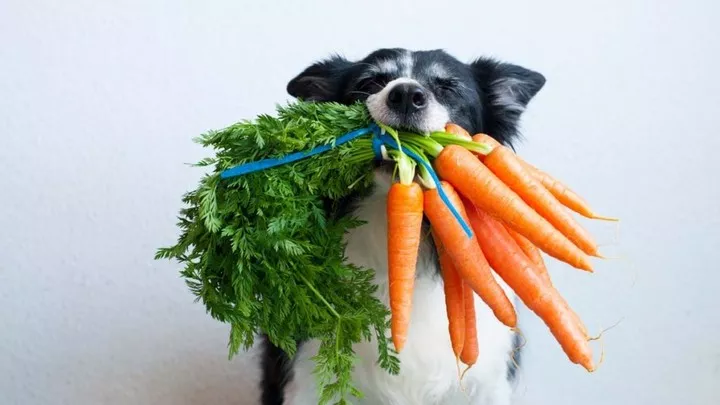
▲Image from: Cosmos Magazine
Shotton also mentioned, "Although we don't recommend it, it is theoretically possible to feed a dog on a vegetarian diet (vegan diet), except that the dog's owner needs to take the advice of a veterinary specialist to avoid dietary deficiencies and associated diseases."
Note that it is mentioned that dogs can be fed a vegetarian diet (vegan diet), not a vegan diet as mentioned in the study. There are other research articles that argue that having dogs on a vegan diet does not give them a balanced supply of available nutrients, predisposes them to deficiencies such as vitamins B and D, and may also lead to malnutrition due to the body's inability to digest large amounts of plants.

▲Image from: Arover
As you can see, it is not advisable for dogs, who are omnivores like humans, to eat a vegan diet. However, it's not completely impossible, it's just important to eat vegan along with other nutrients to stay healthy on whatever diet is available.
Pet health was also mentioned in Professor Knight's study as one of the most important considerations among the 2,596 respondents who decided on their pet's diet.
In addition to considering the dog's health, the dog's thoughts, in fact, should also be taken into consideration.
Many people think that dogs are very intelligent animals, and some studies have shown that dogs have an IQ equivalent to that of a child of a few years old. Since many people call it a 'fur child', it somehow means that they treat their pet dog as a child or a friend.

▲ Image from: Unsplash
Regardless of how one defines a relationship with a pet dog, they will also have their own wishes since they are not the same individuals as humans. The dog should also have its own ideas about whether it wants to be on a vegan diet or not.
One can choose to be a vegan, but one cannot force others to be vegan as well, and by extension, one should not 'force' a dog to eat a vegan diet either.
If you want to get your dog to eat vegetarian, you can give it a try, and there are quite a few vegetarian dog foods on the market now. They don't speak human language, but there are always ways to express whether the food is good or not, and whether they love it or not.

▲Image from: The Times
Some people may think that dogs, like children, love food that may not be good for their health if they only follow their own dietary likes and dislikes. If this is the case, they can be guided in the way they eat to balance their nutrition for their health.
Everyone has the right to choose their own diet, but when dealing with a pet dog that has some subordination, it's really not right to choose it for them, especially if it goes against a diet pattern that has evolved over time.
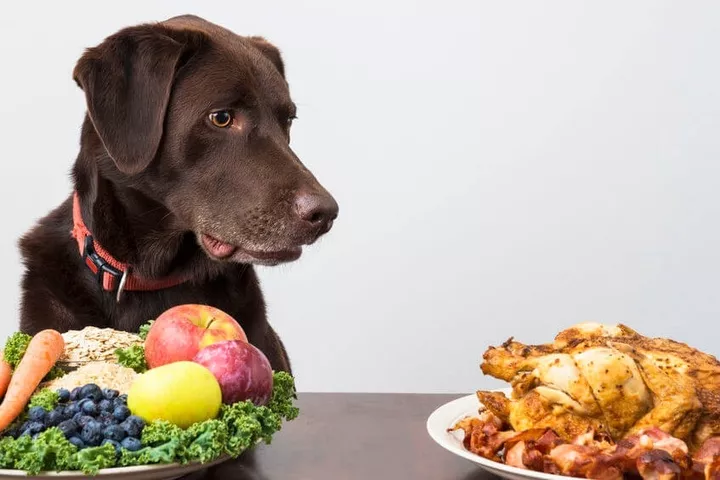
▲Image from: The Times
There are many reasons why people choose a vegetarian diet, it could be because of perception, it could be because of the body, or it could be because of religion. After tens of thousands of long years, dogs have changed their former diet in order to survive. While it cannot be ruled out that some dogs may indeed have to be vegetarian for health reasons, many more dogs that are vegetarian do so simply because their owners want them to.
There can be dogs in this world who want to be vegan and have to be vegan themselves while ensuring health and nutrition, but there should not be dogs who are on a vegan diet because their owners are vegan.